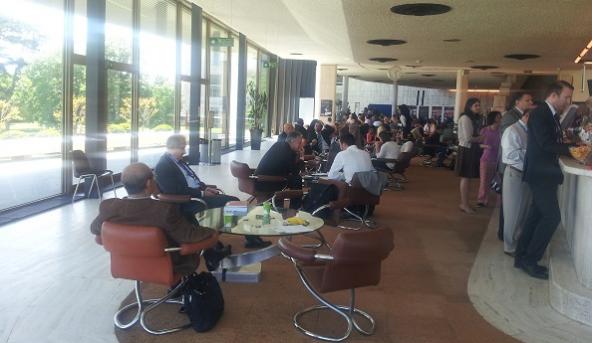
Abolitionist NGOs lobby to educate UN member states in Geneva
International standards
Abolitionist NGOs have a major role to play in the Universal Periodic Review mechanism, during which the human rights situation in each United Nations member state is scrutinized by its peers. Besides writing a report on the death penalty in their countries, they may lobby UN member countries to educate their representatives on issues and concerns to be raised during the review. Outreach may target embassies, consulates, and missions to the United Nations in Geneva.
UPR-Info pre-session
UPR-Info is a Geneva-based NGO that facilitates the participation of other NGOs in the UPR process. For example, they organise one-hour meetings between NGOs and UN Member states to share their knowledge about the situation of the death penalty in the countries to be reviewed before their UPR.
“The pre-sessions offer permanent delegations the opportunity to be informed on the status of implementation of recommendations made during the previous review, while providing space for civil society to influence the process by lobbying several delegations at once” says UPR-Info’s Website.
Before the 22nd session of the Universal Periodic Review to be held late April-early May 2015 in Geneva, representatives of FIACAT, ACAT Liberia and the World Coalition took part in one of these pre-sessions to share their concerns about human rights in Liberia. Bilateral meetings with representatives of UN member states interested in the issue were also conducted after the pre-session and discussions with OHCHR’s staff have helped ensure the sustainable monitoring of the situation in Liberia.
Meetings at the Serpentine
An alternative to this pre-session (where the number of NGOs speaking is limited) is direct lobbying during the Human Rights Council session before the UPR session. There, the work is very different than the well-organised pre-session meetings and whoever was attending the Human Rights Council during the last week of March could not miss the team of dedicated volunteers from the Advocates for Human Rights running everywhere with materials in hands from the Council’s main room to the Serpentine bar, and from to the side events back to the Council’s room to deliver a statement.
Joan Kuriansky, one of the volunteers wrote: “The Serpentine Lounge in Building E, otherwise known as the home of the Human Rights Council in the United Nations Office in Geneva, Switzerland (…) is two floors below the formal major chamber (…) It is a hub of activity against a mellow Geneva landscape. Delegates are in earnest conversations with each other and NGOs to learn from each other and no doubt try to persuade one other. Of the many opportunities I have had here over the week “working,” the Serpentine Lounge has been one of the most energizing. (…) My colleagues and I are meeting with delegates from literally every part of the world. (…) Not only do we share our recommendations and hand the delegates fact-filled one-pagers, we get the chance to learn about the values and politics of countries we may never visit.”
Before the trip, Lisa Borden, another volunteer, was reported to say that “she had never thought before about ways to use international pressure to make changes to death penalty laws in the United States”. “It sort of opened my eyes to a new avenue of maybe advancing the ball,” she said.
During the week, Borden said she would approach delegates from pre-identified target countries, hand them a one-page synopsis of proposed recommendations and ask if they would meet in the UN’s Serpentine Lounge. The meetings would usually last between five and 30 minutes, she said. “The countries are looking for something the US might actually listen to,” she said.
Delegates from all the countries will have a total of three-and-a-half hours to stand up and make recommendations to the US – giving each nation only a few minutes to address any human rights topics. “It has to be laser focused,” Borden said.
Credit photo: https://spititoutblog.wordpress.com/2013/06/08/geneva-the-un-and-much-much-more/







